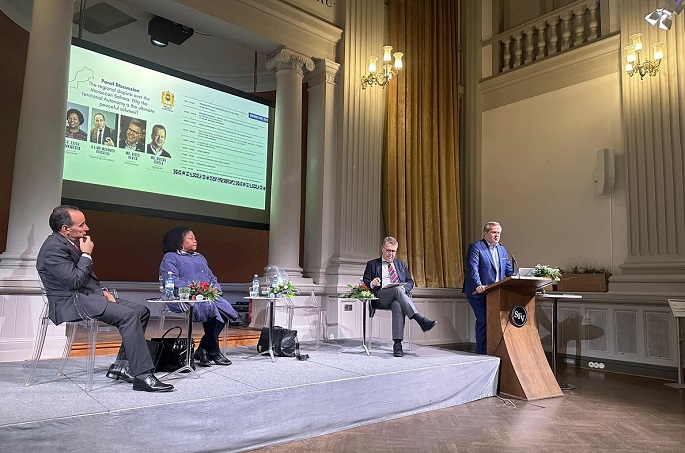Autonomy plan termed as unique solution to regional dispute over Moroccan Sahara
Published : 21 Nov 2023, 12:19
Updated : 21 Nov 2023, 15:10
Speakers at a conference held in Helsinki recently highlighted the Moroccan autonomy plan as the "only and unique solution" to the regional dispute over the Moroccan Sahara.
The conference-debate organized by the Embassy of the Kingdom of Morocco in Finland held on November 16 to commemorate Morocco’s Independence Day and the glorious Green March.
People from different strata including politicians, academicians, diplomats and journalists participated in the conference where they highlighted the significance of the Moroccan autonomy plan and engaged in discussions covering various aspects of the Moroccan Sahara issue.
Speaking on this occasion, the Ambassador of Morocco in Helsinki, Mohamed Achgalou, reviewed the genesis of the Moroccan autonomy plan in the southern provinces within the framework of the Kingdom's sovereignty.
He noted that the credibility, seriousness, and realism of this plan have been established since its officialization in 2007.
He also highlighted "diplomatic successes achieved by this plan, thanks to the enlightened vision of His
Majesty King Mohammed VI," emphasizing the increasing support and positive appreciation of this
initiative among European countries, increasingly convinced of itsrelevance as the only solution to this artificial conflict.
The diplomat underscored the values of peace and reconciliation rooted in Morocco, which offers "a model of voluntarist development and an opportunity that other parties to the conflict refuse to seize."
Achgalou also addressed the "catastrophic situation" in the Tindouf camps, emphasizing the need to make a clear distinction between, on the one hand, the southern provinces of the kingdom, "open, prosperous, free, and duly represented by their elected officials," and, on the other hand, "the Tindouf camps barricaded in the middle of the Algerian desert in a situation of unique lawlessness in the world."
The noted writer and political advisor Risto Huvila highlighted "the need for Europe to reconsider the conflict around the Moroccan Sahara through a new perspective."
He called for "defending the political solution represented by the autonomy plan and unequivocally supporting Morocco's efforts as a reliable neighbor and partner of Europe."
Faith Mkweisha, a professor at the University of Helsinki, pointed out Algeria's and the "polisario's" rejection of the autonomy Plan suggested by Morocco and the roundtable process.
"There are malicious considerations blocking the opening of the only way for women and girls to break free from the long-standing blockade in the Tindouf camps," she noted.
She deplored the instrumentalization of women and children in the Tindouf camps for separatist and propagandist purposes.
According to Mkweisha, these acts represent "a systematic violation of international law and a risk to the entire region."
Politician Anterro Eerola highlighted the "conformity" of the Moroccan autonomy plan with international law and the principles of the United Nations Charter, emphasizing that this plan is "capable of ensuring a better future for the peoples of the region."
This meeting was also marked by a tribute paid by the Embassy of the Kingdom in Finland to members
of the Moroccan diaspora, in recognition of their efforts to strengthen human and social ties between the Moroccan and Finnish peoples.


